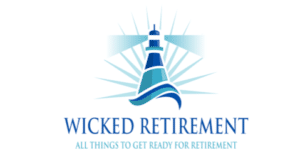This post may contain affiliate links. Please see our Resources Page for more info
Retirement is an inevitable stage that every single one of us is going to face sooner or later. Some would prefer to retire young and spend the rest of their years traveling the world and doing what they love. Others prefer to continue working after they’ve reached their optimal retirement age. Whatever the decision may be, there are a few things that a would-be retiree needs to sort out before he can entirely throw down his working tools.
Revisit Your Health Insurance
It is given that the government has an insurance plan in place for retirees 65 years old and above. However, the coverage that this government insurance might not be as comprehensive as you may want. This insurance is more commonly referred to as Medicare, and there are 4 parts you can choose from. Part A of the Medicare deals with any hospital bills or any in-patient costs billed. Part B, on the other hand, fees charged to the insured. Both parts are what constitutes as the Original Medicare Plan.

Part C is a type of the Original Medical Plan that is sold by private companies with room for additional coverage. Part D of the Medicare Plan covers prescription drugs and some preventive care. Retirees also have the option to apply for Medigap, which will include the rising cost of healthcare. It does not cover prescription costs, though. Make sure that you take a good look at the Medicare plans and see if the coverage is enough for you.
If you already own insurance that you bought from a private company, then it is the best time to revisit the coverage it offers. Times change, and so does your need. Normally, the older a person gets, the more costly it becomes keeping in tip-top condition. With that in mind, your current health insurance might not cover some of the more recent medical conditions. If that is the case, you will then need to consider purchasing additional coverage.
Check Your Retirement Fund
You need to look at your retirement fund and determine if it is enough to last you all through your retirement life. No one wants to get stuck in the middle of their golden years without money or source of income.
The first step is to list down all your monthly retirement expenses and your monthly sources of income in a separate column. From here, you can compare the total monthly fees you have against your total monthly income. You’ll then be able to determine if you need to make certain adjustments on your current lifestyle to stretch out your current retirement fund.
Some of the ways you can stretch your retirement fund are finding ways on how you can reduce tax on your income. Examples are converting a portion of your IRA into a ROTH IRA or ROTH 401(k) and retiring to a tax-friendly state. Other ways also include taking advantage of senior discounts, downsizing your lifestyle, and many others.
List Down Your Assets And Get Your Estate Sorted Out
This might be an uncomfortable task to take, but we are talking about your retirement here, which means that you are also nearing the end of your journey, called life. That being said, having your assets and estate thoroughly planned before you begin your next journey (afterlife) is a sensible thing to do.
The first step is to jot down all your assets. Those include your savings accounts, retirement funds, business interests, real estate, and other valuable items. Then you have to decide what you want to happen to these assets in the event of your demise. It is a little morbid, we admit, but this is inevitable and proper planning will ensure that you will not burden your loved ones with financially draining issues when you meet our maker.
This can be a very confusing task to just do by yourself, which is why we recommend talking to a professional estate planner. He will be able to help you determine all your assets and get your estate sorted out.
Usually, estate plans include “a will” which will deal with the distribution of your assets to your chosen heirs. It has a power of attorney that will determine who will gain authority over your financial affairs and make decisions for you if you are not able to do so.
Another inclusion in your estate planning is “a living will.” This will be a section that will state what kind of medical intervention or life-sustaining medical procedures and practices you want to be done in case you contracted a terminal illness or is unresponsive due to severe injury. This living will usually have a “health care proxy” clause attached to it, which designates the person who has the authority to make medical decisions for you.
Start An Emergency Fund

Let me first make things clear; an emergency fund is different from your retirement fund. Your IRA 401(k) is your retirement fund, but your emergency fund should be something that you’ve got put away to fund your unexpected bills during your retirement. Having this kind of fund will prevent you from tapping into your 401(k) to pay for that new heating system because your old one is busted.
When you were still working, an emergency fund is there to help you pay your bills when your in between jobs or when you’re recovering from illness and you have no paycheck to count on. Ideally, a retirement emergency fund can be started at early or as late as you want but the earlier you start, the better. I’ve known a few who started saving for their retirement as early as the age of 30 and some as late as their mid-50s. It greatly depends on your financial state at present, but most financial advisors suggest building an emergency retirement fund the moment you receive your first paycheck.
To determine if something can be considered as an emergency fund worthy issue, you must first determine if the expense is a recurring one. Usually, your monthly utility bills should not be regarded as an emergency; instead, it should be part of your monthly retirement expense. Another good question to ask is if the cost is something that came up without warning, like roof repairs after the recent storm damaged it or unexpected medical expenses.
To give you an idea of how much your retirement fund should be, you will need to determine your monthly expenses then multiply that to the number of months you want to cover. You’ll later arrive at an amount that would be a rough estimate of how much your emergency retirement fund should be. Keep in mind that this process will only yield an estimated amount and that the actual amount would usually be higher.
Pay Off Your Debt
In an ideal life, someone who retires will have no outstanding debt, and they are enjoying their retirement benefits to the fullest. However, we are not in an ideal world, and most often than not, people will enter retirement with unpaid debts. This move forces them to use their retirement money to pay off their existing debts, which leads to having less money to spend on other essential things.
There are ways on how you can reduce your debt if paying all of it off is not possible. One of the most effective ways is to determine the retirement age you want and then make a strategic plan of refraining from incurring more debt on top of your existing one. Also, financial advisors suggest sticking to just one credit card if you have more than one.
What most people struggle with is how they can prioritize their retirement savings if they have debts to pay. Some of the forums I have visited suggested paying off debt first before saving for retirement. This might not always be the best solution, especially for those who are already nearing their retirement age.
Keep in mind that the goal here is to pay off your debt or reduce it to a manageable amount before you retire. This way, your retirement funds will be intact and will only be used to fund your retirement expenses. This is a very daunting task, but if you can crunch those numbers and figure out how you can eliminate or reduce your debts before you retire, then we suggest going for it.
Make a List Of Your Retirement Needs And Wants
An article published in Motley Fool LLC’s US website gave a total estimation of $46,000 per year that retired seniors spend. So if you factor that amount, and the typical number of years a retirement lasts (18 years), a person needs about $828,000 retirement nest egg to get them through retirement. That estimation does not include emergency expenses that can arise during your retirement days. The things being covered in that estimation are utility bills, transportation costs, housing, food, clothing, and some healthcare costs.

One of the sensible moves to make when you retire is to downsize. Your current home might be ideal when you had your kids living with you, now that it is only you and your partner that house might be too big and too costly to maintain. Maybe you have a different plan in mind; perhaps you want to relocate to a different state where taxes are friendlier to retirees. A different approach would be to just transfer to a different country where your retirement fund will stretch further because of the lower cost of living and cheaper healthcare costs.
Traveling will be part of your “wants” list because this is constituted as leisure as well as your hobbies such as embroidery or golf.
Don’t Forget To Withdraw From Your Retirement Account
Let’s say that you’ve been saving for your retirement, that you’ve religiously contributed and paid your social security fees for the past ten years or more and you together with your boss continually added to your voluntary 401(k) retirement account. You’ll be entitled to a monthly benefit from the social security system and an annual one on your 401(k). The monthly amount you get in your social security benefit will depend on the amount of your taxed earnings while you were still in service while the 401(k) depends on how much you contributed into the account. However, you have the option to delay both benefits depending on your preference.
But, you must make sure that you do withdraw from your retirement account. Forgetting to do so can cost you some considerable amount of charges. Yes, the early withdrawal will have some tax penalty amounting to 10% of the total cash amount but forgetting to withdraw from your 401(k) can also face a penalty of 50% of the total cash that you were supposed to withdraw when you reach the age of 70 ½.
Most retirees talk to legal advisors in appointing a person from their family or friends who will be in charge of withdrawing from their 401(k) if they are not able to. Now if for some reason you find yourself looking at your current retirement nest egg, and you see that this will not be sufficient to last you throughout your retirement years then consider the next option.
Investigate Annuity
Annuities can be easily described as an option or insurance contract that you sign where you are paid regularly in the future or as soon as possible.
One option why many are converting a portion of their 401(k) into an annuity is to give their retirement funds a chance to earn and grow with assurance and guarantee. It allows retirees who have a small amount saved in their retirement account to stretch their retirement funds earning further up.
Retirees who are eligible to withdraw from their retirement fund are entitled to take advantage of annuity contracts. That is if they feel that they prefer to have a scheduled regular payment laid out for their future retirement years.
Sort Out Your Social Security Retirement Benefit
When I say sort out, it does not just involve getting your documents ready and having the application filled out. This also means that you need to decide if you are okay with just getting social security retirement benefits or if you prefer to have a 401(k).
The moment you decided, you will then have to calculate how much your social security benefits are and then add your 401(k). You’ll then be able to determine an estimated amount of how much income you will receive when you retire. I suggest that you start gathering all the necessary documents if you are planning to retire soon. This will allow you to see if your retirement income will be able to support you and your spouse.
Ask Yourself At What Age You Plan To Retire
Americans retire at an average age of 63. Most would say that they find this age to be the best time to retire because they are still well and able to do the things they love and travel. This will vary from case to case, of course, retirees who are forced to retire due to an illness, may not agree with the previous statement.
That being said, depending on your situation, you may decide to retire earlier than 63 or later if you still are able to work and your employer still employs you. You need to choose at what age you plan to retire. This way, you can compute the amount of your retirement fund in advance and get to decide if you want to work well after you reach your desired age. Also, it means that you have a ballpark amount where you can base your social security retirement benefit income calculations from.
Once you know how much time you have until your retirement, you’ll be able to plan on what aspects of your life you are willing to let go. It will help lessen the number of your expenses if your monthly income is not enough for your monthly bills. This can also help guide you into determining how much more money you need to save to make your retirement nest egg lasts all throughout your retirement.
Plan For Continued Work
If you are able to work further than the average retirement age, then nobody is stopping you. You get to put in more contributions into your retirement fund and get to earn more paychecks too. The good thing about continuing with your work is that even if you reach the age of 70 ½, you will not be p[enalized for not taking your required minimum distribution (RMD) from your 401(k).

You can also try and cutting back your working hours and ask your employer if you can work part-time. Or you can quit your current job and look for a lighter, part-time job where you can earn a regular wage. You can then enjoy other activities.
Conclusion – Checklist for Preparing to Retire
In a nutshell, the things to keep in mind before you retire will vary, but the basic ones are listed above. Most financial advisors will tell you to have everything that is mentioned above in order, especially your estate plan before you even start planning for your retirement. The earlier you start saving for your retirement, the better chance your retirement savings earn interest. Your retirement fund will earn more significant interest as time goes by. It is not mandatory to settle all your debts before your retirement, but it is highly recommended that you try and minimize it. Keep your health insurance up to date and make sure that you are well covered.
Lastly, your retirement age depends on you and your current situation. Decide if you want to continue earning a paycheck after you’ve reached the average retiring age or you want to retire earlier than initially planned due to some unforeseeable circumstances. No matter what you do, remember that retirement is a stage where all of us will inevitably reach. It is another adventure, one that you may take alone or with your spouse. Don’t forget to enjoy it and don’t forget to laugh often.
As always, if you like this post or the blog please share it.
My goal is to create a retirement community where everyone can share their experiences of either being retired (we want to learn from you), preparing to save for retirement or making more money for retirement we want to hear from you.
If you are at all interested in creating your own blog (I have so much fun with it!) I highly recommend Alex and Lauren’s courses at Create and Go. They have tried it all and now offer these courses on how to set up your own blog and avoid the mistakes they made.
They explain everything in a way that is easy for anyone no matter what age you are to create your own blog.
You can make money Blogging, by the way, Alex and Lauren made $150K last month, so they know what they are talking about. It is an affiliate link, but I have purchased all their courses and love them and there is no extra cost for you. They are by far the experts in this area and genuinely want you to be successful.
My review of their Launch your Blog Biz Course is here.
My review of their Pinterest Avalanche Course is here.
All the resources I recommend can be found on the Resources Page. I wouldn’t recommend them if I didn’t use them myself.
If you have any questions don’t hesitate to drop me a line at theteam@wickedretirement.com I’ll always respond.
